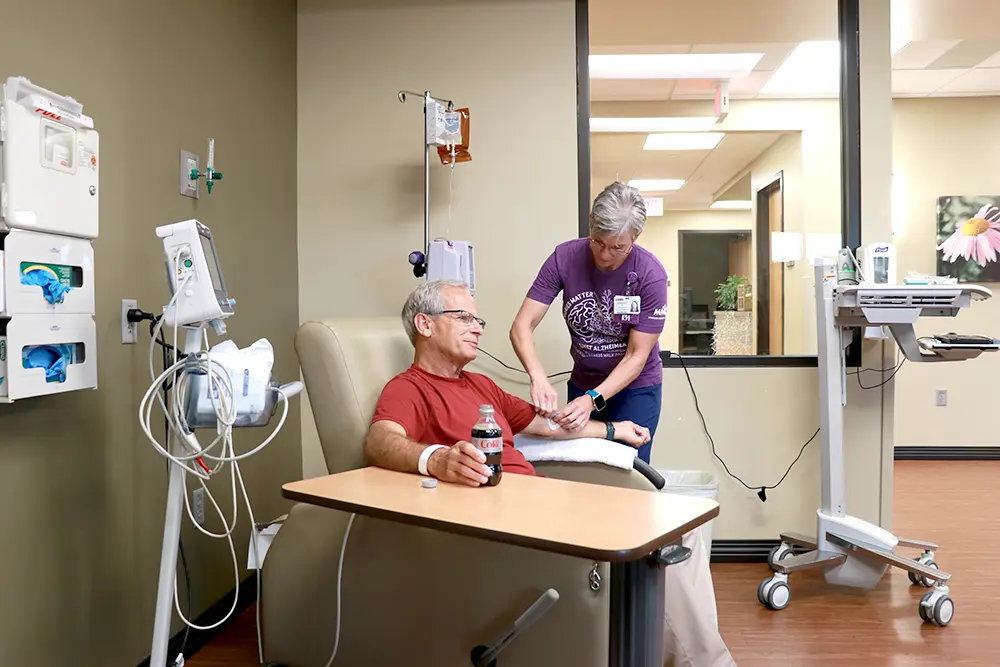Could your child benefit from mental health help?
Children and teens can be sad, anxious, angry and irritable at times. In many cases, challenging behaviors and emotions are an expected part of growing up.
Still, mental health disorders can happen to people of all ages, and some behaviors in children and teens may signal a more serious problem. What’s just a stage, and what’s cause for concern? These signs, as identified by the National Institute of Mental Health, can help you know when your child or teen may benefit from a health care provider’s attention.
Read more to find out:
- What to watch for in young children
- What to watch for in teens and tweens
- Where to find help
- The ins and outs of school-based counseling
What to watch for in young children
Children may:- Have frequent tantrums or be intensely irritable much of the time.
- Talk frequently about fears or worries.
- Complain of headaches or stomachaches with no known medical cause.
- Be unable to sit quietly except when watching TV or playing video games.
- Struggle academically or have a recent decline in grades.
- Repeat actions or often check things out of fear bad things will happen.
“Children can have traumatic experiences at a very early age that can cause a variety of difficulties with emotional or behavioral regulation,” said Rachael Swopes, Ph.D., a licensed psychologist and clinical director of Behavioral Health Services at Citizens Memorial Hospital. “The earlier we identify the children and help address their mental health, the more successful these children will be in school and in life.”
What to watch for in tweens and teens
Older kids may:
- Show less interest in activities or interests they once enjoyed.
- Have low energy.
- Sleep too much or too little.
- Diet or exercise excessively or fear weight gain.
- Engage in self-harming behavior, such as cutting or burning their skin.
- Smoke, drink or use drugs.
- Engage in risky behavior alone or with friends.
- Have thoughts of suicide.
- Say they hear things others can’t hear.
Mental health is an important part of your child’s overall well-being. Seek help if your child’s or teen’s behavior lasts for a few weeks or longer. And seek help if the behavior is distressing for your child or your family or interferes with your child’s ability to function at school, with friends or at home. If your child’s behavior isn’t safe, or if your child talks about hurting himself or herself or someone else, get help immediately.
Contact your health care provider if you think something is amiss. They can provide reassurance or give a referral to a behavioral health specialist.
“Many schools are partnering with organizations such as CMH to make behavioral health care available to students during the school day,” Dr. Swopes said. “These partnerships make services more accessible to children and teenagers.”
The ins and outs of school-based counseling
Citizens Memorial works with local school districts to increase student access to behavioral health care. Licensed clinical social workers and licensed professional counselors provide services at partner schools.
“Students receive counseling during regular school hours,” Dr. Swopes says. “This makes it easier for students to receive help because parents don’t have to provide transportation or leave work for appointments.”
CMH providers can help students with depression, anxiety, recent loss/grief and these behavioral issues:
- Aggression.
- Defiance.
- Hyperactivity.
- Suicidal ideations/cutting.
- Anger outbursts.
- Substance use.
- Bullying.
Teachers, school counselors, primary care physicians and parents may refer students to a CMH counselor. The student’s first visit will be at a CMH primary care clinic, along with parents or legal guardians, when possible. Providers conduct follow-up appointments at the school during school hours.
CMH behavioral health provides 760 school-based counseling sessions per month.
“These numbers show how common it is for students to need help,” Dr. Swopes says. “Students and parents should know it is OK to ask for help.”
Services are strictly confidential and adhere to state licensing and HIPAA regulations. CMH accepts most major insurance plans, and financial assistance is available.
CMH currently provides school-based counseling in the Bolivar, Dallas County, El Dorado Springs, Osceola and Stockton school districts.
For more information about school-based counseling services
Parents wanting to learn more about enrolling their child in school-based counseling should contact your local CMH primary care clinic.
Schools or agencies wanting to learn more about offering school-based counseling in their district should contact Angela Long, director of behavioral health operations, at 417-328-6708.
Source: National Institute of Mental Health


